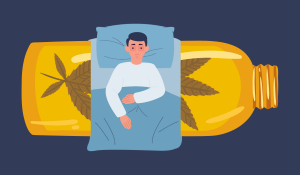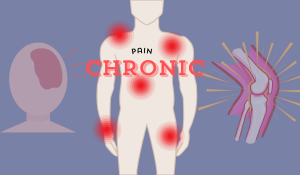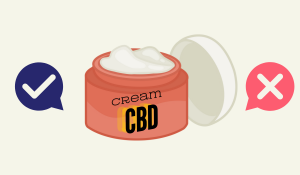CBD has been found to alleviate many symptoms of autism such as epilepsy, anxiety, sleeplessness, stress, and aggression.
Anecdotal evidence also show that CBD may be useful for behavioral and speech issues like tantrums. It is important to first check with your doctor before starting on CBD.
A neurological disorder with no known cause, autism has a wide spectrum of outcomes for those diagnosed with it. For some, the symptoms may be mild and capable of being managed. For others, though, the symptoms may be more severe, causing a disruption not only in the autistic person’s lifestyle but those that care for them, too.
However, there appears to be a treatment that has shown an ability to reduce symptoms and improve the quality of life for those diagnosed with autism. Using CBD for Autism Spectrum Disorders has shown potential in both clinical and real-world trials.
A recent study in Israel found that CBD can help to alleviate disorders such as epilepsy, anxiety, sleeplessness, stress, and aggression. As many of these disorders show up as symptoms of autism, there appears to be hope that CBD can have an impact on those with autism.
Anecdotal evidence also points to the potential power of CBD for families with autistic members. These families found that using CBD for behavioral and speech issues helped. Tantrums grew infrequent, anxiety fell dramatically, and speech development blossomed. This potential needs to be further studied to confirm the causal relationship between the drop in symptoms and the use of CBD, but the initial stories are overwhelmingly positive.
The most important first step in any autism treatment is to check with your doctor. It needs to be said that cannabis is not a realistic option in treating autism in every case. There may be legal ramifications for providing CBD to children. Your local CBD purveyors may be selling products with impure CBD or that contain unsafe ingredients. Your doctor will also have questions for you regarding your child’s baseline health and behaviors, and what steps you’ve already taken to mitigate symptoms. It is essential to have detailed notes about these subjects so your doctor can provide advice based on current and accurate information.

Therapeutic Uses of CBD Managing Chronic Pain with CBD Struggling with chronic pain? CBD might help. Studies suggest it can reduce inflammation and alleviate discomfort,...
Read More
Cannabis has been used for millennia to treat numerous health conditions. Current research offers promising results on the effects of CBD oil on breast cancer.
Read More
If you've ever wondered about using CBD for insomnia, you should know how CBD helps anxiety, stabilizes your sleep-wake cycle, and makes falling asleep easier.
Read More
CBD-infused salad dressing: Imagine a fresh, crisp salad enhanced with a light, herbaceous vinaigrette containing your daily dose of CBD. To create this, you’ll need...
Read More
1. What Is CBD and Why Is It a Game-Changer for Skin Health? CBD (cannabidiol) is a natural compound extracted from the hemp plant. Unlike...
Read More
The Legal Landscape of CBD The 2018 Farm Bill and Its Impact The signing of the Agriculture Improvement Act of 2018, commonly known as the...
Read More
Breakthrough #1: CBD’s Role in Chronic Pain Relief Chronic pain robs people of precious moments. A 2021 study in the Journal of Pain Research highlights...
Read More
Understanding Arthritis Pain Arthritis is a chronic condition that affects daily activities, from opening jars to taking walks. Here’s a look at the two most...
Read More
Types of Pain CBD May Alleviate CBD shows promise in managing various types of pain: CBD vs. Traditional Painkillers Traditional painkillers like opioids can be...
Read More
CBD Cream Side Effects – Focusing on Topical Applications How CBD Creams are Made Ever wondered how CBD creams come to life? It’s a fascinating...
Read More